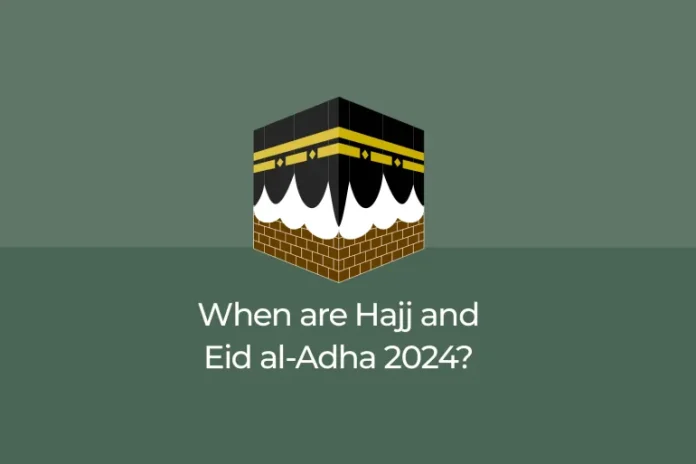Hajj, the most significant annual Muslim gathering, unfolds in Mecca from the eighth to the 10th of Dhul-Hijjah, the final month of the Islamic calendar. Scheduled to commence on June 14 this year, it will be followed by Eid al-Adha celebrations on June 16, as determined by the sighting of the moon.
This pilgrimage is a fundamental obligation for all able-bodied Muslims who can afford it, offering a means to cleanse oneself of sins and draw closer to Allah. It typically begins about 10 to 12 days earlier each year.
Eid al-Adha, also known as the festival of sacrifice, coincides with the third day of Hajj and spans three days. Falling on June 16 this year, it holds significance as the second major Muslim festival after Eid al-Fitr, marking the end of Ramadan.
During Eid al-Adha, Muslims symbolically recall Prophet Ibrahim’s readiness to sacrifice his son Ismail in obedience to Allah’s command. This is commemorated by sacrificing an animal and distributing its meat among the less fortunate.
The Hajj pilgrimage involves various rituals and steps. Pilgrims arrive in Mecca in a state of ihram, symbolizing purity and spiritual focus. Men dress in seamless white cloth, while women wear plain clothing adhering to hijab rules.
Re-enacting Prophet Muhammad’s farewell pilgrimage in 632 AD, pilgrims follow in the footsteps of Abraham and Ismail through the desert. This journey fosters unity among pilgrims from diverse backgrounds, embodying humility and spiritual devotion.
Anticipation builds as Hajj approaches, signifying not only a religious obligation but also a deeply transformative experience for participants. Despite challenges posed by the COVID-19 pandemic, measures are in place to ensure the safety and well-being of pilgrims.
Hajj holds not just spiritual but also economic and social significance. The influx of pilgrims contributes to Mecca’s local economy and infrastructure, promoting cultural exchange and understanding among people of different nations.
Hajj and Eid al-Adha epitomize devotion, sacrifice, and unity in the Islamic faith. As Muslims prepare for this sacred journey, they reflect on the timeless teachings and traditions that continue to inspire and strengthen their faith.























